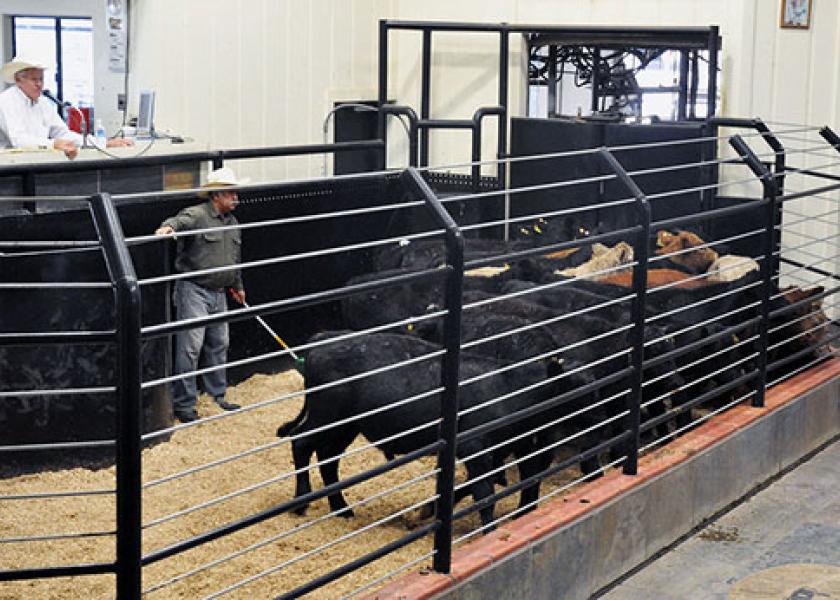Effects of Transporting Cattle on Auction Prices

Kansas State University researchers have completed a large study of 211 livestock video auctions, analyzing the sale of more than 60,000 beef calf and feeder cattle lots to determine the effect of trucking distance on sale price of the calves.
The K-State team accessed data indicating the sale price of 42,043 beef calf and 19,680 feeder cattle lots sold through Superior Livestock Auctions from 2010 through 2018. Then, they analyzed sale prices based on how far the successful buyer had to transport the lot after sale.
Their four categories were within state; short haul; medium haul; and long haul.
Not surprisingly, buyers who had a long way to travel to get cattle home paid less at the livestock auction, compared to those who had shorter trips home. In addition to fuel costs, producers who transport cattle longer distance assume a higher risk of illness and subsequent loss in performance due to stress on the animal.
The price difference was, however, not as wide as some might expect. For beef calf lots, in-state buyers paid an average of $169.24 per hundredweight (cwt), while the data indicated the long-haul buyers paid $166.70 per cwt.
For feeder cattle, the difference also was slight: in-state and short-haul producers paid $149.96/cwt and $149.81/cwt, respectively, while the long-haul producers paid an average $148.43/cwt.
“Over many years, research has shown there are many factors that can affect feeder cattle prices,” said Karol Fike, a co-author of the study and a faculty member in K-State’s Department of Animal Sciences and Industry. “This work has allowed us to evaluate the effect of trucking distance on sale price while simultaneously accounting for many other factors that can affect the sale price. This work assists those involved in the beef cattle industry to make informed decisions.”
Their study is part of a publication of research that will be available during the 108h K-State Cattlemen’s Day, which will be held online March 5.
Registration for Cattlemen’s Day is free and all are encouraged to participate online via the Zoom platform. To participate, you must register online, or for more information contact Lois Schreiner at 785-532-1267 or lschrein@ksu.edu.
Ken Odde, professor of animal science and also a study co-author, notes that the research on cattle prices and trucking distance “is one study of many we have conducted using the Superior Livestock Auctions database.”
“This database includes sales of calves and feeder cattle from most states in the country and has been used to study such areas as calf health programs, genetic programs, age and source verification and other attributes of feeder cattle lots. The trucking distance work is important in that it helps us and our audience to better understand factors influencing the sale price of calves.”
K-State doctoral student Esther McCabe, who completed her degree in Fall 2020, also helped with the research.
Also on March 5, the 44thAnnual Legacy Bull and Female Sale will begin at 4 p.m.
The sale will be online at LiveAuctions.tv. Please note masks and social distancing will be required for in-person attendees. Due to university protocols regarding COVID-19, attendance numbers will be monitored.
Interested persons are invited to look at the bulls prior to the day of sale day and view the offering online. Visit asi.ksu.edu/legacysaleto learn more about this year’s offering and to request a sale catalog. For more information contact Shane Werk at 785-565-1881.







